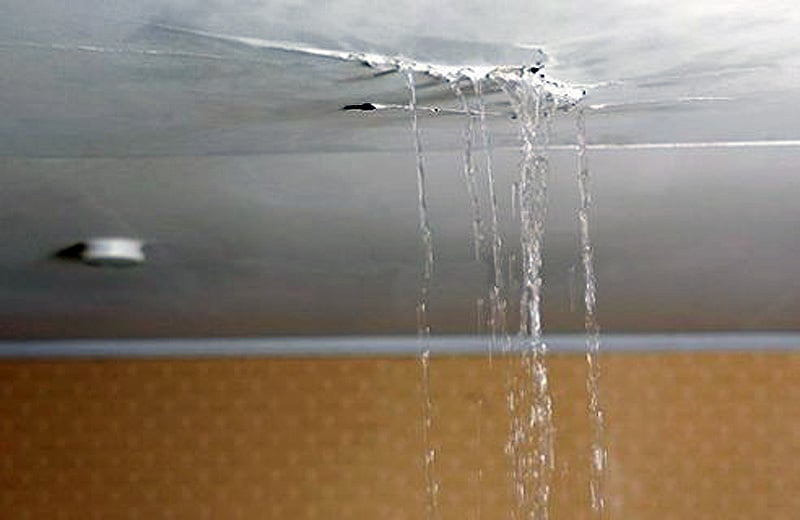Exploring Why Water Leaks Occur Frequent in Your House
Exploring Why Water Leaks Occur Frequent in Your House
Blog Article
On this page in the next paragraph yow will discover a lot of awesome details relating to How to detect water leaks in your home.

Leakages not only trigger waste of water but can likewise cause unnecessary damages to your residence and also promote undesirable natural development. By looking as well as understanding for everyday scenarios that create leakages, you can shield your home from future leakages as well as unneeded damage.
Immediate temperature changes.
Extreme temperature level modifications in our pipelines can cause them to increase and acquire all of a sudden. This growth and also contraction may create cracks in the pipes, particularly if the temperature level are below freezing.
Corroded water supply
As time goes by, your plumbing system ages and corrosion such as rust may begin gnawing the pipelines. This could be the cause of discoloration or warping on your water pipes. This requires an examination with your plumber right away. If our plumbing system is old, consider replacing the pipes because they go to a greater risk of corrosion than the more recent versions.
Defective Pipe Joints
The factor at which your pipes attach is frequently the weakest web link in the waterline. Pipeline joints can weaken with time, resulting in water leaks. However, the majority of pipe joints are not easily noticeable. If you have noisy pipes that make ticking or banging noises, especially when the warm water is switched on, your pipeline joints are possibly under a great deal of pressure. It is recommended to have your plumber inspect your system yearly.
Trespassing origins
The majority of water leaks start outside your house instead of inside it. If you see an unexpected reduction in water stress, state in your tap, take time to go out and also analyze your backyard. You could observe damp patches or sinkholes in your yard, which could mean that tree origins are invading water lines creating water to leak out. You can have your plumber check for invasion, especially if you have trees or shrubs near your home.
Poor Water Connectors
At times, a leak can be triggered by loose pipes as well as pipes that provide your home appliances. In case of a water links leakage, you may see water running directly from the supply line or pools around your appliances.
Blocked Drains
Obstructed drains could be frustrating and inconveniencing, however they can occasionally end up triggering an overflow causing break pipes. Keep eliminating any type of products that might drop your drains pipes that could clog them to avoid such hassles.
All the above are root causes of leaks however not all water leaks arise from plumbing leakages; some leaks may come from roofing system leaks. All leakages need to be fixed promptly to prevent water damage.
Leakages not just trigger waste of water but can additionally create unnecessary damage to your residence as well as advertise undesirable organic development. By understanding and also looking for everyday situations that create leakages, you can secure your home from future leaks and unneeded damage. Today, we will look at six leakage triggers that might be creating your pipelines to drip.
At times, a leakage can be triggered by loosened tubes as well as pipelines that provide your home appliances. In instance of a water links leak, you may observe water running straight from the supply line or pools around your appliances.
How To Check For Water Leak In Your Home
How To Check for Leaks
The average household's leaks can account for nearly 10,000 gallons of water wasted every year and ten percent of homes have leaks that waste 90 gallons or more per day. Common types of leaks found in the home are worn toilet flappers, dripping faucets, and other leaking valves. These types of leaks are often easy to fix, requiring only a few tools and hardware that can pay for themselves in water savings. Fixing easily corrected household water leaks can save homeowners about 10 percent on their water bills.
To check for leaks in your home, you first need to determine whether you're wasting water and then identify the source of the leak. Here are some tips for finding leaks:
Take a look at your water usage during a colder month, such as January or February. If a family of four exceeds 12,000 gallons per month, there are serious leaks.
Check your water meter before and after a two-hour period when no water is being used. If the meter changes at all, you probably have a leak.
Identify toilet leaks by placing a drop of food coloring in the toilet tank. If any color shows up in the bowl after 10 minutes, you have a leak. (Be sure to flush immediately after the experiment to avoid staining the tank.)
Examine faucet gaskets and pipe fittings for any water on the outside of the pipe to check for surface leaks.
Undetected water leaks can happen without the home or business owner even realizing. If you suspect a water leak, but not able to find the source. It is time to contact a professional water leak detection service, The Leak Doctor.
How To Find a Water Leak In Your Home
https://www.leakdoctor.com/blog/How-To-Check-For-Water-Leak-In-Your-Home_AE197.html

As a fervent reader about Common Water Leaks In House, I think sharing that excerpt was smart. Are you aware of another individual who is interested by the topic? Take a moment to promote it. We value reading our article about How Fast Water Damage Can Ruin Your Home.
This Site Report this page